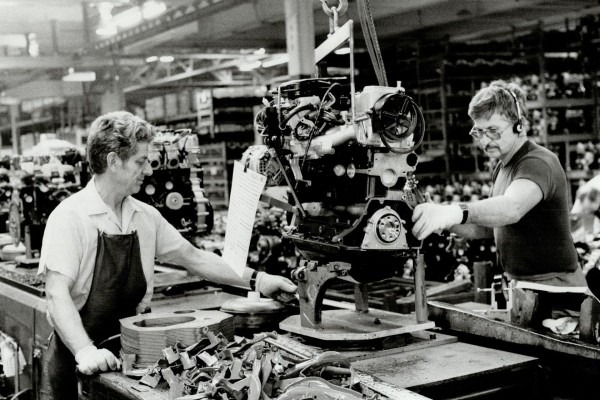Dissent and Democracy
For a while it looked like the 2007 CUPE national convention was going to be a placid affair. As in 2005, the majority of delegates voted in favour of increasing the representation of women on the National Executive Board. But once again, nothing will change because the vote was not quite sufficient to break the two-thirds threshold required by CUPE for constitutional changes to be adopted.
But CUPE has other problems coming out of the convention. Walkouts from the convention hall by the vast majority of CUPE delegates on each of the last two days of the convention reflected a growing split between Ontario locals and CUPE’s national leadership. According to the CUPE Ontario Division, the major issues in dispute are its under-representation on the National Executive Board (with 42 per cent of the members, Ontario has four out of 23 positions) and access to the national strike fund to finance bargaining-related campaigns. Many Ontario activists are also concerned about what they perceive to be an overall move toward moderation on the part of the national leadership.
Convention walkouts usually don’t accomplish much. At best, they strengthen the political positions of the leaders of the opposing camps. This time was no exception.
Having consolidated their positions within their respective constituencies, it is now up to CUPE national president Paul Moist and Ontario Division president Sid Ryan to resolve this dispute. Moist and his allies may be able to outvote Ryan on the CUPE Executive Board, but they need Ontario’s support if they want to be successful in implementing convention decisions, like the planned multi-million-dollar campaign against privatization. Ryan may have emerged as CUPE’s undisputed leader in Ontario, but he needs allies in the rest of the country if he is to be successful in resolving the issues of representation and financial cost-sharing at the national level.
These are serious issues. Left unresolved, they have the potential to poison relationships inside the union and render it divided and ineffective. Currently many CUPE members are under attack from public employers cutting services and privatizing jobs. They need to see their leaders working together to reconcile their differences and getting on with the job of implementing the many excellent policies and action plans adopted by the convention.
CAW Debates the Magna Agreement
In most unions there is a reluctance of activists and local leaders to publicly criticize the actions of their national leaders. Often unionists want their leaders to be seen as being in a strong position, and public dissent is perceived as weakening the union. Moreover, unionists have other ways to deal with differences. There are conventions where decisions and policies can be overturned and leaders voted out of office, or at least held accountable. Things usually have to be very serious before unionists will air their divisions in public.
Everyone knows that the Canadian Autoworkers Union (CAW) is a great union. It represents its members well on the shop floor. It has an excellent education program. It does good work on the environment and it supports progressive leaders in communities across the country. It looks like we will soon learn how well it deals with demonstrations of public dissent from within its ranks. To outside observers, it has long been a mystery how a union could make such gigantic policy twists and turns without generating any significant visible opposition.
Recently there have been many articles in the media in which former and current CAW officials have publicly criticized the decision of their national leadership to enter into the Framework of Fairness Agreement with Magna International. Most of the criticism has focused upon the removal of the right to strike and provisions in the collective agreement that prohibit the workers from voting for their representatives. For many unionists, these are issues of principle, essential for the effective functioning of a union.
It is a positive sign that this debate is occurring within the CAW and within the broader labour movement. Honest debate only serves to make us stronger and better.
This article appeared in the January/February 2008 issue of Canadian Dimension (Big Media).










